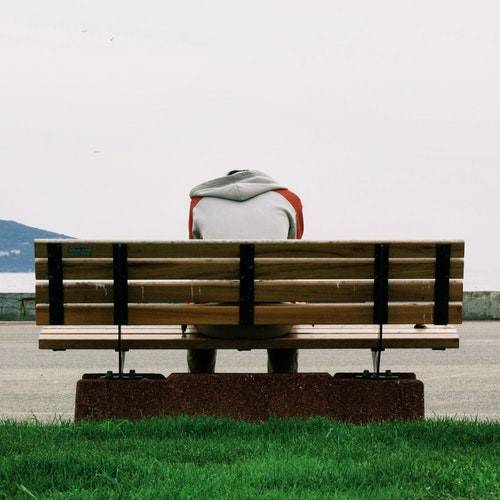
Written by Philippa Walsh
We often hear that guilt is a ‘wasted’ or ‘useless’ emotion – the internet is full of inspirational quotes to this effect. The reality is that guilt is one of several important emotions that separates us from our animal friends and should not always be seen as negative. It is only when we hold on to it for too long, that it can become self-defeating and destructive.
Guilt is just one emotion of many. It enables us to have more empathy for others, to take remedial action if needed in order to put things right and work towards self-betterment. The capacity to forgive ourselves following a thought or behaviour that has made us feel guilty, is necessary to be able to move on in a positive and enlightened way. Often, I see clients where self-forgiveness seems unattainable and this is when guilt has become a source of ongoing pain, eating away at a person’s self-esteem.
This type of unresolved guilt usually stems from a belief that a person should be punished over and over again. This punitive type of thinking can become very damaging over time and ruin any future chances of happiness. Guilt keeps us stuck in the past and drains our energy.
Guilt is something that we can feel just for having an unkind thought – even if we haven't acted on it. For example, we may wish something unpleasant upon someone we feel aggrieved about, or perhaps guilt occurs as a result of feeling attracted to someone else.
Sometimes we can feel guilty for not responding to an event or a loss in the same way as others. We can even feel guilty if we’re unable to return the same depth of love or friendship that we receive. Many people feel guilty for ‘failing’ to meet the expectations of others.
Importantly, we need to distinguish the emotion of guilt from that of shame. Shame is a slightly different animal…it makes us feel inadequate or bad about who we are, rather than what we said, thought or did.
When guilt remains unresolved, it can very quickly lead to shame. Shame is not a helpful emotion. Instead of helping us feel empathic and foster personal growth, it has a counter effect. It can cause further rumination and a greater preoccupation with ourselves. This can rapidly sabotage our relationship with our self and those with others.
Shame can make it hard to focus on what it is you’re actually feeling guilty about. Focusing and sitting with the initial guilt you feel, is necessary in order to be able to move on from it.
Attempting to sweep it under the carpet to avoid facing it may help in the short term, but it will not allow you to reach the point of self-forgiveness. Ultimately, punishing yourself maintains feelings of guilt and shame; but accepting responsibility and taking remedial action improves it.
What you can do to break free from guilt:
First of all, if you’ve been trying to stick your head in the sand and avoid thinking about what has made you feel guilty, take ownership of what has made you feel guilty and accept what you did to trigger this emotion.
Think about why you thought or behaved the way you did at that point in time. What was your reason for what you thought or did?
Look at how you're judging yourself. Are you judging yourself by your own or someone else's principles? Do you really need their approval? How were your emotions or mistakes received during childhood? Were they accepted, forgiven or punished?
Identify the beliefs that you held during the event. E.g. “It's okay to lie if I don't get found out.” Decide if you agree with these beliefs. Did your actions reflect your true beliefs or values? If not, what may have led you to act or think in a way that was not being true to them? Did you cause yourself emotional pain by acting outside of them?
How did your thoughts or actions affect others involved? Who did you cause emotional or physical pain besides yourself? Take action and think of ways to right your wrongs. Can you apologize to the person or their loved ones?
Would you forgive someone else who thought or did the same? If you would, think about why would you treat yourself more harshly? How does it help to continue punishing yourself? Be kind to yourself - write yourself a self-compassionate letter of forgiveness.
Remorse is healthy and leads to remedial action. Think about what you’ve learned from this experience and how you may avoid repeating this in the future.
If you feel able to, share what you did with someone that won't judge you. Talk about what happened in a supportive and confidential environment such as therapy. Keeping what happened to yourself can become toxic to your mental well-being.
Self-forgiveness must not be mistaken for having no remorse. You can still know that you were at fault, just as you might forgive someone else, even though you believe that the person was wrong for the way they behaved. You can feel regret for what you did or thought, but at the same time accept that you’re a human and that all humans make mistakes. Adopt an attitude of humility and self-acceptance.
If you are struggling to deal with guilt or shame, reach out to me today to see how counselling and psychotherapy in Manchester can help you move on.
